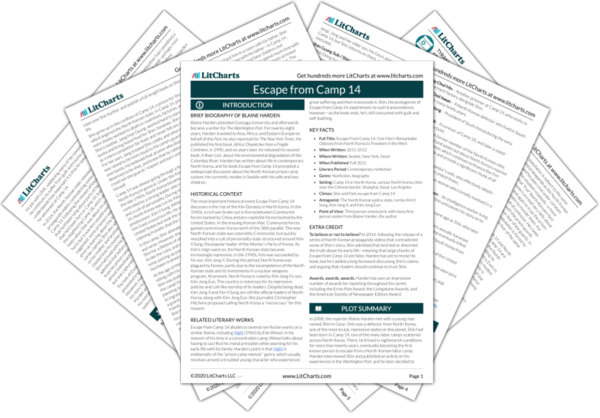In retrospect, Shin’s account of his early life is full of lies and distortions of the truth, which he only admitted much later. Even so, readers should be sympathetic to Shin: like so many trauma victims, he concealed the truth to protect himself from reliving his traumatic past.
